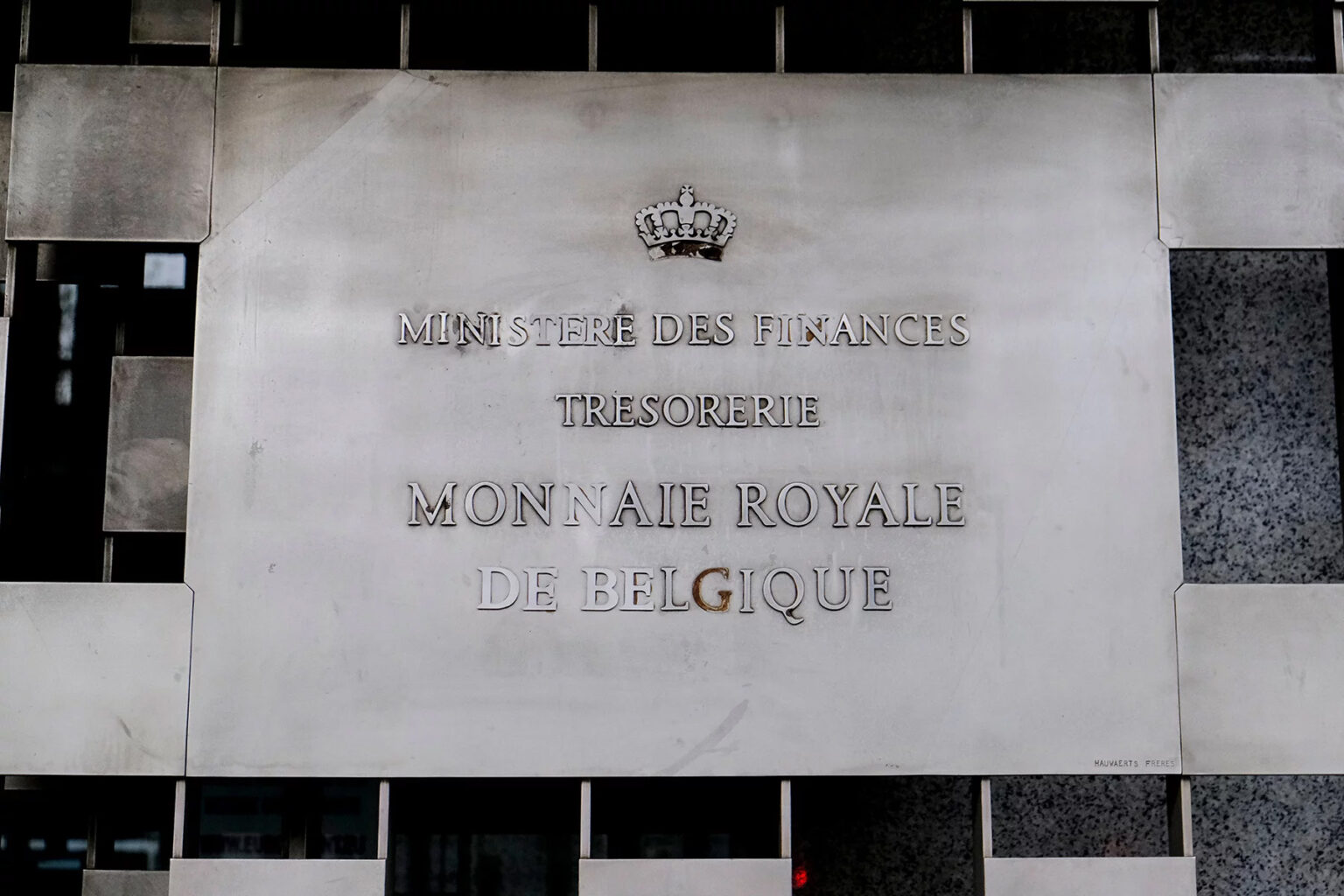Getting to know a country’s tax system means that you’ll be aware of what you owe and when you need to pay it, so you’ll avoid any nasty surprises. And as an international, you might be wondering how these taxes apply to you and how to pay them.
Below, you’ll find an overview of the main taxes in Belgium and how they affect you and your business. Each section also includes a short outline of rates and information on how to pay and where to find advice.
Read on to learn about:
MeDirect
Get more from your money with MeDirect. This Belgian savings and investment bank is home to financial experts who can help you expand your investment portfolio and track your stocks and shares. Enjoy in-app accessibility and let your money work for you with MeDirect.
The tax system in Belgium
Belgium is known for having some of the highest tax rates for individuals in Europe, with personal income tax reaching 50% of earnings. In contrast, the country’s corporate tax rates are in line with other European countries.
According to a 2023 report, the largest percentage of revenue (PDF – figure for 2021 tax year) came from social security contributions, taxes on personal income, and value-added tax (VAT).

While the Federal Public Service (FPS) Finance oversees tax matters in Belgium, each of the three regions (Brussels, Flanders, and Wallonia) manages regional taxes, including real estate, road tax, and inheritance. As a result, where you live in the country influences how much tax you pay.
Updates for 2024
The Belgian budget outlined several developments for the future at the end of the 2023 tax year. Those most likely to apply to expats include:
- Real estate: The reduced VAT rate of 6% for heat pumps continues in 2024, but it now excludes solar panels unless they are part of renovations on a home over 10 years old.
- Tax avoidance: From January 2026, businesses must send electronic invoices. In addition, passive income from abroad and international tax schemes will be more closely scrutinized.
- Green transition: Taxes on electricity will decrease, while those on fossil fuels will increase from 2028.
If you live in Belgium and plan to buy or renovate property, earn income from abroad, or own a business, it’s worth being aware of these future measures.
Who pays tax in Belgium?
Both residents and non-residents pay taxes in Belgium. Residents pay tax on their worldwide income, including rent and capital gains, while non-residents only pay income tax on anything they earn from Belgium. Similarly, resident businesses pay taxes on international income, while non-resident ones only pay them on their Belgian income.
If you live in Belgium for at least six months (183 days) of the year and are registered with your local commune, then you are a resident for tax purposes.
How does tax work for expats?
Tax for expats in Belgium generally works the same as for Belgian nationals – the only difference is whether you are a resident or not.

However, expatriates working in Belgium temporarily may be able to apply for a special taxation regime and only pay income tax on what they have earned locally (rather than worldwide), even if they’re classified as Belgian residents.
Expat tax regime
In 2022, a new expatriate tax regime for executives and specialists was introduced. This system applies to employees and directors recruited abroad or posted to Belgium. They can take 30% of their income tax-free, up to €90,000. Their income must be over €75,000 unless they qualify as researchers, and the regime can be used for five years (with the possibility of extending it to eight years).
This tax regime aims to provide a more transparent system and simplify hiring foreign executives. You must also meet several other criteria to qualify.
Do I need a tax ID number in Belgium?
When you arrive in Belgium and register at the municipality, you’ll get a national number. This number serves various purposes, including tax identification.
Residents receive a National Register Number (numéro de register national/rijksregisternummer/Nationalregisternummer), while those who do not need to apply to the National Register have a non-national BIS number (numéro Bis/bis-nummer/BIS-Nummer). This applies to you if you’re only working in Belgium temporarily.
Businesses also need a national tax number, and most will have a VAT number, which you receive when registering your business. You can read more about these forms of identification in our article on Tax identification numbers in Belgium.
Types of tax in Belgium
Below, you’ll find an overview of the types of tax in Belgium. While some remain the same across the country, others vary according to your region and municipality.
Income tax
If you’re living and working in Belgium, income tax is an inevitability. Not only do you pay tax on your earnings, but it’s mandatory for everyone to file a tax return, whatever their employment status.
Income tax is what you pay on what’s left after deducting social security contributions, personal allowance, and professional costs. For residents, this tax applies to all worldwide sources of income, including:
- Salary and employment benefits
- Interest from savings and investments
- Rental income
The income tax rates follow a progressive scale, ranging from 25% for individuals earning under €15,200 and reaching 50% for those surpassing €46,440. Furthermore, municipal taxes usually deduct a portion of your income as an additional charge. You can find out more about these costs and rates later in the article.
Income tax for self-employed workers
Self-employed workers pay the same rates of income tax as employees. However, they must register with the tax authority to make payments.
As well as income tax, self-employed workers must make social security contributions and pay VAT when providing goods and services.
Ensure you keep accounts, receipts, and income records so you can file your taxes easily and accurately.
Municipal tax
Municipal taxes on utilities, including TV, trash collection, and water, are levied by the relevant regions, provinces, and municipalities (communes/gemeentes). You pay these at the same time as income tax, as a surcharge at rates of up to 9% (PDF) of the tax owed.
The exact tax rate is set at the municipal level, so where you live makes a difference to what you owe. On the other hand, non-residents pay a federal tax at a flat rate of 7%.
VAT
In Belgium, VAT is called Taxe sur la Valeur Ajoutée (TVA) or Belasting over de Toegevoegde Waarde (BTW). This applies to most goods and services.
The standard rate is 21%, but there are lower rates for some categories of goods and services. A rate of 12% is applied to food served in restaurants and social housing, while a rate of 6% applies to most basic goods, such as food, water supply, books, and medicine. A 0% rate is available on some daily and weekly publications and recycled goods.
Can you get a refund on BTW/TVA?
If you’re selling goods to another VAT-registered business elsewhere in the EU, the customer pays VAT at their own country’s rate. This also works the other way around, so if you buy goods from another country within the EU, you’ll pay VAT at Belgian rates. You will need the customer’s VAT number when making a cross-border transaction. You can check this through the European Commission.
VAT for businesses
If you run a business, it’s important to consider how VAT might affect you. Most companies must pay VAT, which should be included in the prices of their goods and services.
You must register for VAT with FPS Finance, keep records of your sales and receipts, and file a monthly or quarterly return.
Corporate tax
If you run a company or association with a registered office in Belgium, you may need to pay corporate tax on your profits. This generally doesn’t apply to freelancers and sole traders, as they pay income tax.
As of 2024, the standard rate of corporate tax in Belgium remains at 25%. This rate has been in effect since 2021 when the previous rate of 29% plus a 2% crisis tax was reduced. For smaller companies with profits below €100,000, a reduced rate of 20% is applicable.
Property tax
Property owners must pay an annual tax, based on ownership, as of 1 January each year. The amount is calculated on the presumed annual rental value (revenue cadastral/kadastraal inkomen) that is attributed to the property by local authorities.
The tax paid varies according to the commune and the region. Currently, the rates are as follows:
- Brussels-Capital Region – 2.25% of annual rental income
- Flanders – 2.5%
- Wallonia – 1.25%
Inheritance tax
Inheritance tax applies to the total value of the estate of a person settled in Belgium or any property owned in the country if they are not settled there.
How much tax you pay varies depending on the location. You pay it to the region where the deceased was a tax resident for most of the last five years of their life.
Gift tax
Belgium has a three-year rule for gifting movable and immovable property. This means that if you give something to an heir and then die within three years, they must pay inheritance tax on the value of the gift. As with inheritance tax, gift tax rates vary depending on where in Belgium the deceased resided and their relationship with the beneficiary.
Payroll taxes
If you own a business and employ people, you’ll have payroll taxes to consider. These contribute to social security, such as benefits and pensions in Belgium.
Employers currently pay a rate of 25–32% and are responsible for withholding 13.07% of the employee’s salary for contributions.
Road tax
Planning to drive in Belgium? Then you’ll need to pay annual road tax on your vehicle. When you register your vehicle with the Vehicle Registration Service (Direction de l’immatriculation des véhicules/Dienst voor Inschriving van Voortuigen – DIV), your region’s tax authority will automatically be informed, and you’ll receive a tax sheet each year.
Road tax rates are indexed each year on July 1st, and you’ll usually need to pay your bill by the first day of the month you registered your vehicle. How much you pay depends on your vehicle and where you live. You can estimate your tax bill with the following calculators and tables:
- Brussels – Road tax information
- Flanders – Traffic tax simulator
- Wallonia – Road tax amounts
Some vehicles are exempt from road tax, including:
- Electric and hybrids
- Those driven by people with certain disabilities
- Occasional transport (conditions apply)
- Those exported to the European Economic Area (EEA) within six months.
Check your region’s guidelines to find out whether any of these exemptions apply to you or your vehicle and whether you need to take any action to benefit from them.
Tax avoidance and evasion in Belgium
Tax avoidance and evasion have been a hot topic in recent years in Belgium, with FPS Finance estimating tax fraud to cost the country €30 billion (in French) per year. Meanwhile, around €383 billion was legally sent to tax havens in 2020.
Therefore, authorities are increasingly attempting to crack down on tax evasion. In 2023, new powers were introduced to allow the tax authority to investigate tax fraud better. These include a four-year tax assessment period if a return is filed late or not at all and a new rule requiring digital platforms to report information to the tax authorities.

Furthermore, Belgium has been considering stricter rules on controlled foreign companies (CFC), meaning that undistributed passive income may be included in the tax base unless the company can “demonstrate substantial economic activity.” There have also been amendments against international tax planning and other anti-tax evasion measures, which Deloitte discusses in detail.
Tax fines and penalties
As an individual, if you fail to submit your tax return on time or pay an outstanding tax bill, you’ll be subject to a penalty. How much you pay depends on how late the return or payment is and whether you’re deemed to be deliberately avoiding tax. Fines for late submissions range from €50 to €1,250, alongside a tax surcharge of 10% and 200% of the amount owed.
Tax fines exist for companies that fail to file returns or pay taxes. Again, surcharges of up to 200% are possible, and they may also face legal sanctions. How high the fine is varies depending on the company’s turnover, number of employees, and sector.
Tax advice in Belgium
Taxes in Belgium can be a complex matter. The information above provides a general overview, but you should always get professional advice from a Belgian financial expert regarding your individual tax situation.
The Ministry of Finance (Service Public Fédéral Finances) provides information on all aspects of taxation, most of which is available in Dutch and French, or you can call +32 (0)2 572 5757 (8:00 to 17:00).
You can find an accounting expert (expert-comptable/compte fiscal/accountant/belastingconsulent) through the website of the Institute for Tax Advisors & Accountants.
If you need advice on claiming a tax refund, check out services such as TaxBack, who provide English-language services and specializes in helping internationals with overpaid taxes.
Useful resources
- Belgian Ministry of Finance (Service Public Fédéral Finances) – official government website
- Portail de la Wallonie – information in French on regional taxes in Wallonia
- Vlaanderen.be – information in Dutch on regional taxes in Flanders












